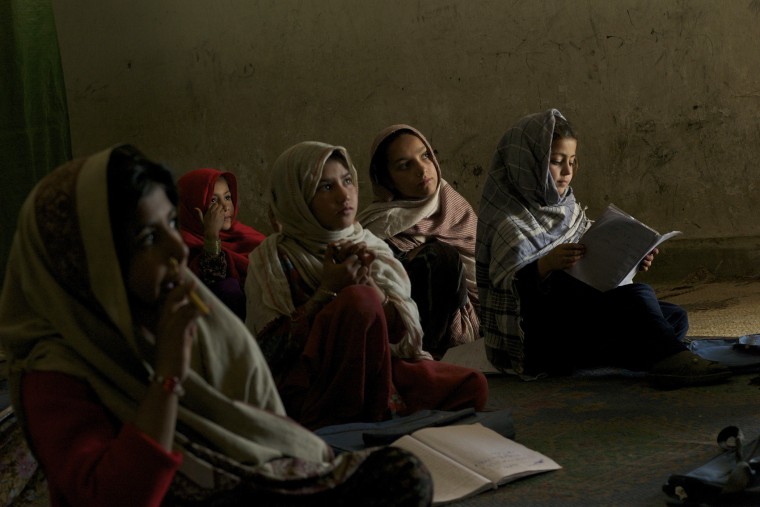An estimated 62 million girls worldwide are not in school, and half of those are adolescents. With that statistic in mind, the White House on Tuesday introduced a new education initiative — spearheaded by first lady Michelle Obama and the Peace Corps — dedicated to helping adolescent girls around the globe enroll in school and complete their educations.
Let Girls Learn is a program designed to combat problems faced disproportionately by under-educated girls -- including diminished economic opportunities, increased susceptibility to HIV/AIDS, forced marriage, and other forms of violence -- by affording them the opportunity to learn. "[W]hen a girl receives a quality education, she is more likely to earn a decent living, raise a healthy, educated family, and improve the quality of life for herself, her family, and her community," according to a statement issued by the White House.
Last year, the United States Agency for International Development (USAID) launched a public engagement campaign by the same name. The new effort, the White House says, will "elevate existing programs," leverage existing partnerships and build new ones, challenging "other organizations and governments to commit resources to lift up adolescent girls across the globe" through community-led solutions. It will spend an estimated $250 million in new and reallocated funding through the Department of State, USAID and the Peace Corps, along with donations from the private sector.
According to Tina Tchen, chief of staff to Michele Obama, the issue of girls' education is personal to the first lady, who believes strongly in "the power of community-based solutions" to eliminate educational barriers. "Throughout her travels over the past six years, in meetings with local leaders and the Mandela Washington Fellows from the Young African Leaders Initiative, and in discussions with experts and global education advocates, the First Lady has heard first-hand about the power of community-based solutions to eliminate barriers to adolescent girls' education around the world," the White House said in a statement.
